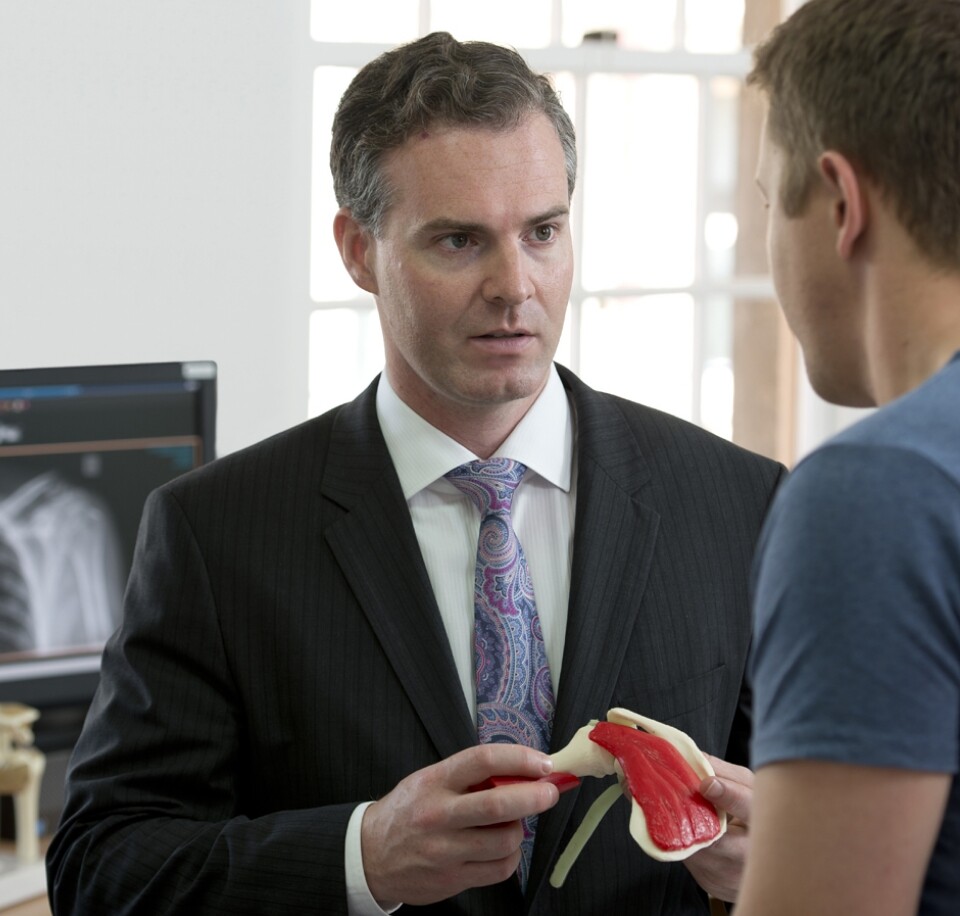Shoulder Fractures
Adelaide Orthopaedic surgeons offering exceptional care.
Trauma to the shoulder is common with injuries resulting from falls, high speed car accidents or sports. Most shoulder fractures involve the clavicle (collar bone) or proximal humerus (top of the upper arm bone) and less commonly, the scapula (shoulder blade), which is more difficult to break and often associated with chest injuries.
Symptoms of Shoulder Fractures
While many fractures are a result of high force impact or stress, bone fractures can also be caused by medical conditions such as osteoporosis.
Broken bones and minor injuries can often be successfully treated without orthopaedic surgery, however injuries with significant deformity or associated skeletal instability are better treated with surgery to ensure the bones heal in the correct position and reduce the risk of future complications.
In nearly 80 percent of shoulder fractures, the broken bones remain near their anatomic position (non displaced), therefore immobilisation in a sling or shoulder immobiliser is the best treatment, and heal within about six weeks.
The other 20 percent of shoulder fractures are displaced and may require some type of manipulation or surgery to restore the bone to the correct anatomical position.
Often the rotator cuff muscles are injured or torn at the same time as the fracture, which can further complicate treatment.
Shoulder Fracture Treatment & Reconstruction Procedures
Some fractures are not suitable for repair or fixation and alternative procedures may be required such as replacement, excision or fusion.
Most shoulder injuries whether treated surgically or non-surgically can affect arm mobility for several weeks or even months. Physiotherapy is recommended to decrease stiffness, improve range of motion and help you regain muscle strength.
Non-surgical treatment for fractured shoulders
Immobilisation
Most fractures can be healed with immobilisation in a sling for about 6 weeks. X-rays will be used to determine whether the fracture has healed sufficiently to permit motion exercises.
While your shoulder has been immobilised, it is important to maintain flexibility of your elbow, wrist and fingers. Your surgeon will advise when you should commence shoulder exercises.
Surgical options for broken shoulders
Surgical treatment methods include:
- Plating (plates, rods or screws)
This animation shows the process of inserting a plate in an upper arm (humerus head) fracture - Wiring
- External fixation (external frame)
Many shoulder surgery procedures can be performed minimally invasively with shoulder arthroscopy; however sometimes larger incisions are necessary to allow good visualisation of the injury.

What should I discuss with my orthopaedic surgeon?
Your surgeon will discuss the following during your consultation:
- The type of injury
- Severity of the injury
- Treatment options
- Possible complications
- Whether surgery is necessary
- Length of recovery time after shoulder surgery
- Short and long-term expected outcome
Have you tried our…
Shoulder pain self assessment tool?